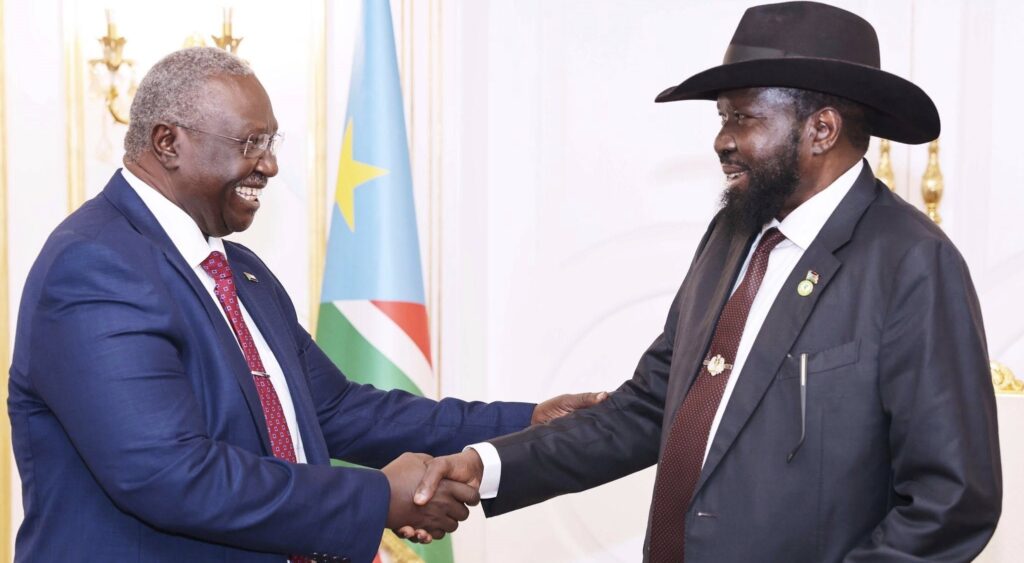A high-ranking Sudanese official met with South Sudan’s president Monday in a bid to bolster economic and security cooperation as Sudan’s conflict intensifies economic strains and regional instability.
Malik Agar, deputy chairman of Sudan’s Sovereign Council, led a delegation to Juba for talks with President Salva Kiir Mayardit, focusing on strengthening bilateral relations. The discussions come as Sudan grapples with a devastating war between its military and the paramilitary Rapid Support Forces (RSF), now in its second year.
South Sudan’s Foreign Minister, Monday Semaya Kumba, told reporters the talks emphasized expanding economic collaboration and addressing regional security concerns. He said the Sudanese delegation briefed Kiir on Sudan’s security and economic conditions, though specifics were not disclosed.
“We reiterated Juba’s commitment to fostering peaceful cooperation and mutual development with Sudan,” Kumba said.
Sudan’s ambassador to South Sudan, Issam Mohammed Hassan Karrar, echoed the sentiment, stating Khartoum’s intent to deepen ties across all sectors.
Analysts, however, suggest the visit was primarily driven by Sudan’s urgent need to revive stalled negotiations over oil exports—a critical revenue source—amid mounting economic pressures.
“The talks aim to reopen the stalled oil file, which Sudan previously used as leverage against South Sudan,” said Sudanese political analyst Hatem Ayub Abu al-Hassan. He noted that Agar, perceived as having close ties to Juba within Sudan’s ruling factions, is positioned to mediate.
Abu al-Hassan told Radio Tamazuj that that Sudan’s inflexibility had previously derailed negotiations, but the formation of a new government under Prime Minister Kamil Idris has increased Khartoum’s urgency to secure oil revenues.
The visit coincides with heightened tensions in Sudan, where the RSF is working to establish a rival cabinet based in the western region of Darfur, deepening the country’s de facto division.
The conflict, which erupted in April 2023 over disputes tied to Sudan’s political transition, has killed tens of thousands, displaced over 15 million people, and triggered what the U.N. describes as one of the world’s worst humanitarian crises.
While diplomatic relations between the two nations remain tense, Abu al-Hassan said both sides share a mutual interest in resolving oil and border disputes—particularly as Sudan’s anticipated parallel government could further complicate negotiations.




